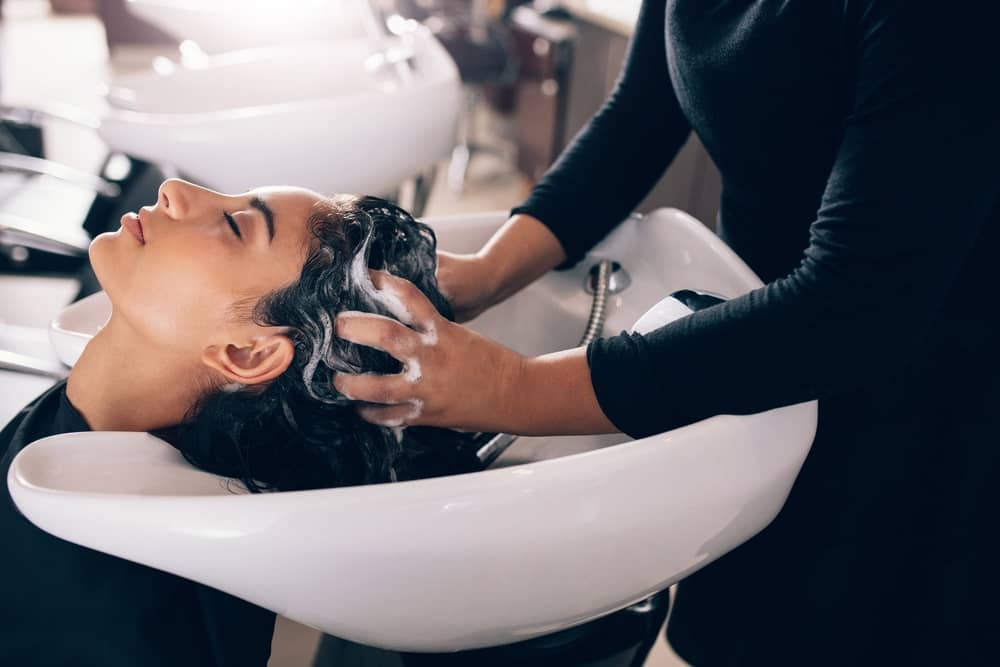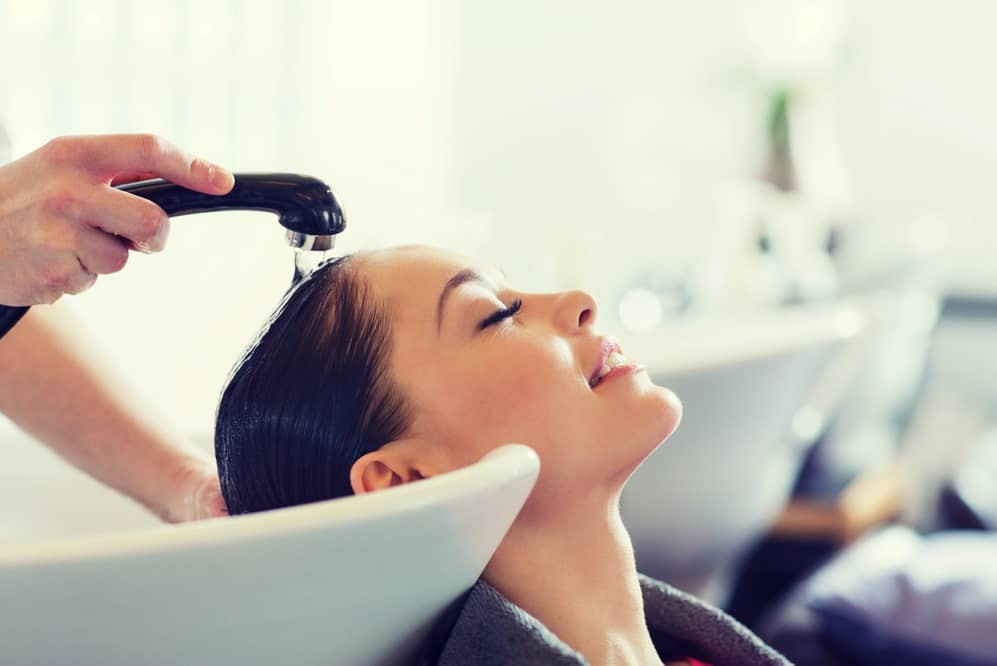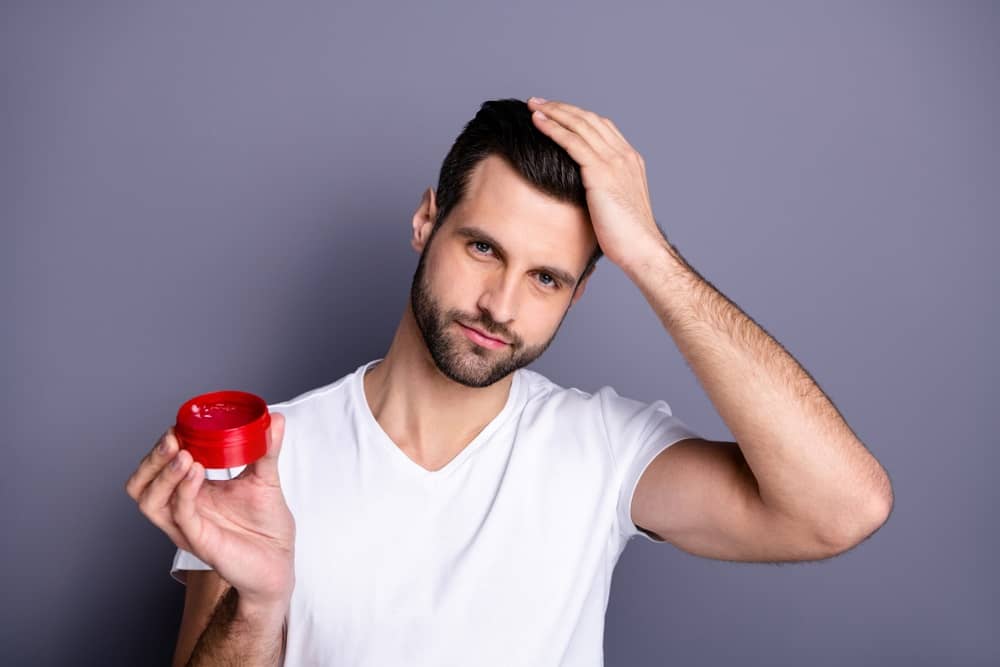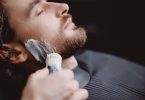1. Nourish from Within: Diet and Nutrition
Your beard, like any other part of your body, requires proper nourishment to grow thick and healthy. A balanced diet rich in vitamins and minerals can significantly improve the condition and growth rate of your facial hair.
- Protein: Hair is primarily made of keratin, a type of protein. Consuming foods rich in protein like eggs, lean meats, and legumes can help supply the building blocks for healthy hair growth.
- Vitamins and Minerals: Key nutrients such as biotin (Vitamin B7), Vitamin D, Vitamin E, zinc, and magnesium are known to contribute to hair growth. Leafy greens, nuts, seeds, and whole grains are excellent sources of these essential nutrients.
- Hydration: Staying hydrated is crucial for keeping your skin and hair healthy. Proper hydration can improve blood circulation and prevent dry, brittle hair.
2. Skincare Routine: Healthy Skin Equals a Healthy Beard
Maintaining a proper skincare routine can greatly influence beard growth. Healthy skin fosters a more conducive environment for hair follicles to thrive.
- Exfoliation: Regularly exfoliating your face helps remove dead skin cells, unclogs pores, and encourages new hair growth. You can use gentle exfoliants like scrubs or exfoliating brushes a couple of times a week.
- Moisturizing: Keeping your skin moisturized prevents dryness and irritation, which can stifle hair growth. A good moisturizer or beard oil containing natural ingredients like jojoba oil or argan oil can nourish both your skin and beard.
- Cleansing: Clean skin promotes better hair growth. Use a gentle cleanser daily to remove dirt and oil buildup, which can block hair follicles.
3. Exercise and Stress Reduction: The Indirect Boosters
While exercise and stress management may not directly affect beard growth, they contribute to a healthier body, which indirectly supports hair growth.
- Exercise: Physical activity improves blood circulation, which means more nutrients and oxygen are delivered to your hair follicles. Weightlifting, cardio, and even yoga can all contribute to better circulation and overall health.
- Stress Reduction: High levels of stress can increase the production of cortisol, a hormone that can negatively impact hair growth. Incorporating stress-relieving practices like meditation, breathing exercises, or hobbies can help lower cortisol levels and promote healthier beard growth.
4. Sleep and Rest: The Power of Recovery
Getting enough sleep is essential for hair growth. During sleep, your body repairs and regenerates cells, including those responsible for hair growth.
- Aim for 7-9 Hours of Sleep: Quality sleep supports hormone regulation, including testosterone production, which plays a significant role in beard growth.
- Sleep Position: Believe it or not, the way you sleep can also impact your beard. Sleeping on your back helps prevent friction that can damage your facial hair.
5. Patience and Persistence: The Psychological Element
Beard growth takes time, and it’s important to remain patient during the process. It’s easy to become frustrated if your beard isn’t growing as quickly or as fully as you’d like, but persistence is key.
- Accept the Phases: Beards often go through awkward phases where growth is uneven or patchy. Avoid the temptation to shave it all off during these phases. Over time, your beard will likely fill in.
- Don’t Compare: Everyone’s beard grows at a different pace and in a different pattern. Try not to compare your beard growth to others’, as this can cause unnecessary frustration.
6. Beard Supplements and Oils: A Possible Boost
If you’re looking for an extra boost, beard supplements and oils might help. Products containing biotin, folic acid, and specific vitamins are designed to encourage hair growth, though their effectiveness can vary from person to person.
- Biotin Supplements: These are commonly used to promote hair and nail growth. While there is some evidence to suggest that biotin can help strengthen hair, it’s not a magic cure-all. Results vary, but many find it worth a try.
- Beard Oils: Natural oils like eucalyptus, tea tree, or peppermint oil may stimulate hair follicles and promote growth. These oils also help condition the beard and skin, preventing irritation and breakage.
7. Trim and Shape Your Beard: Healthy Grooming
Trimming your beard, even when growing it out, may seem counterintuitive, but it’s actually a crucial step. Regular trims help remove split ends, which can hinder growth, and allow your beard to maintain a neat and well-groomed appearance.
- Use Proper Tools: Invest in quality beard trimmers, scissors, and combs designed specifically for facial hair to avoid damaging your beard.
- Define the Shape: Even if you’re aiming for length, defining the neckline and cheek line can make your beard look more purposeful and less unruly during the growth stages.
Conclusion: Your Beard, Your Journey
Growing a beard is a personal experience that depends on a variety of factors, including genetics, health, and care routines. While some men may be able to grow a full beard effortlessly, others may require a bit more time and care. Focus on nourishing your body, maintaining healthy skin, managing stress, and keeping a positive mindset, and your beard will have the best possible environment to flourish.
Remember, patience and persistence are your best friends in this process, and with the right approach, you can cultivate a beard that suits your style and personality.














Great advice! I’ll definitely be implementing some of these tips.